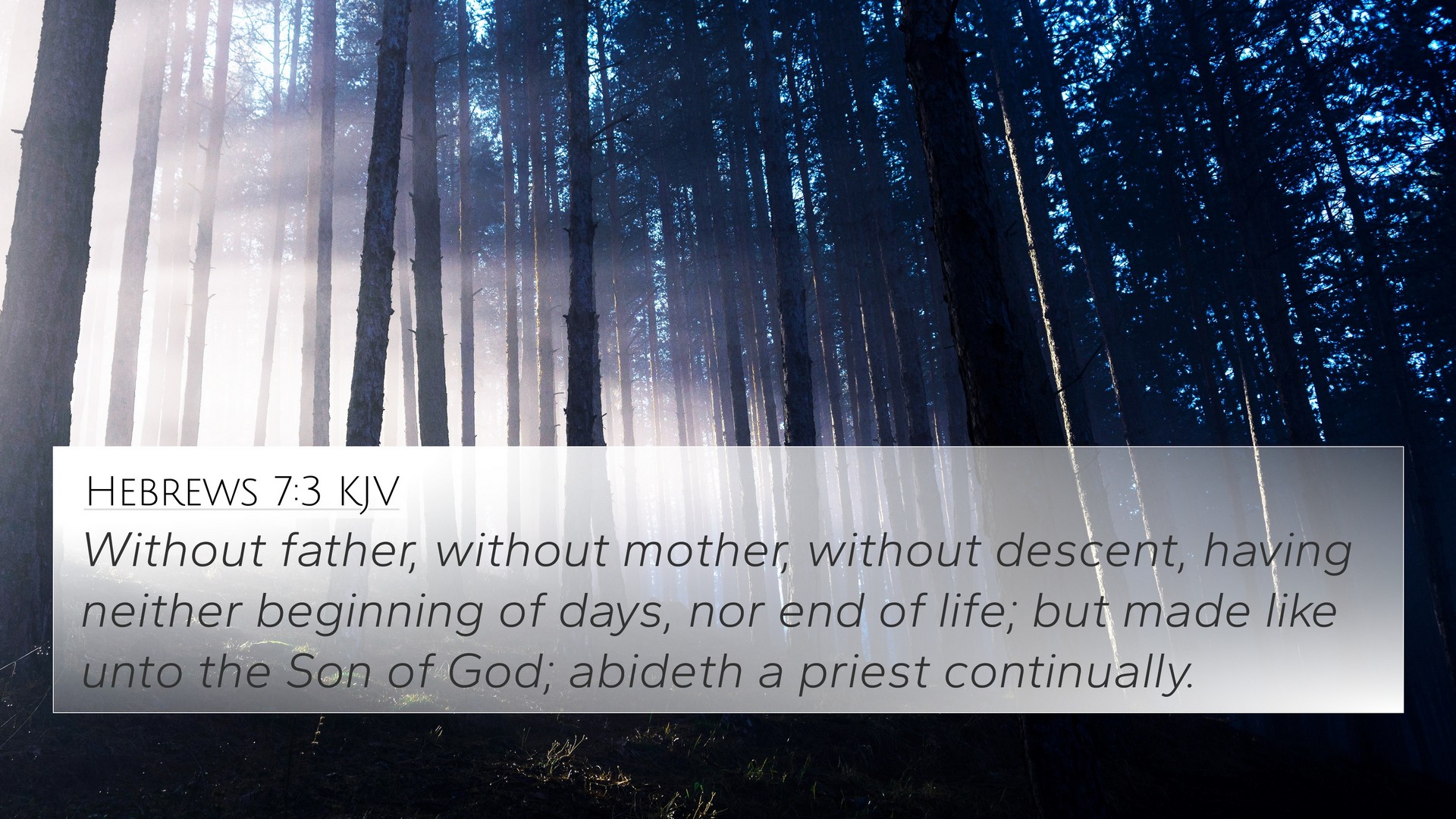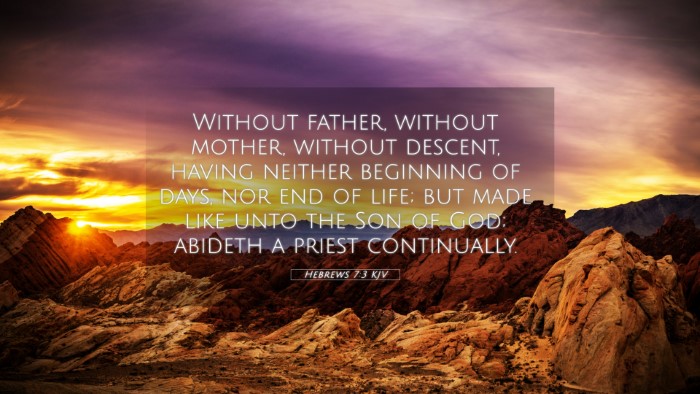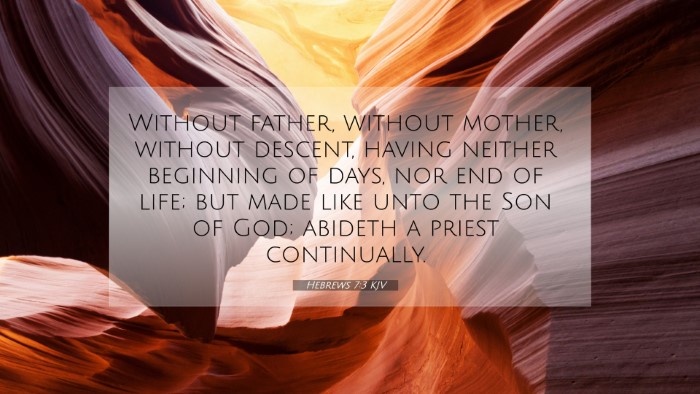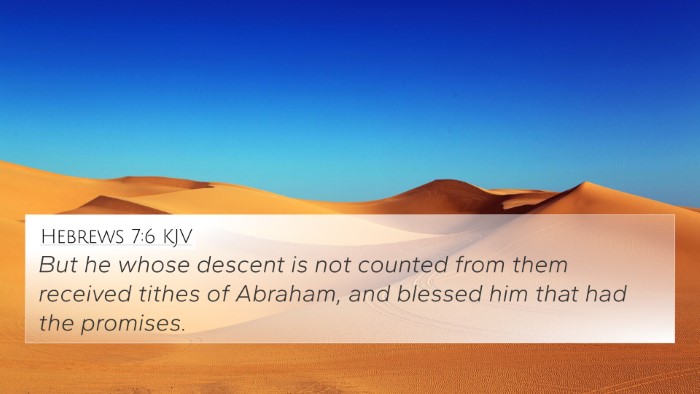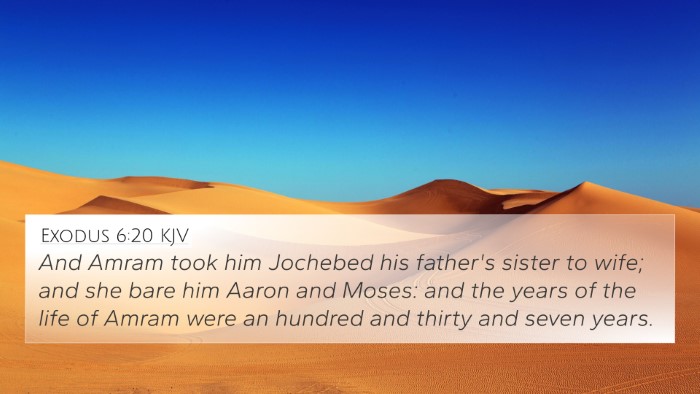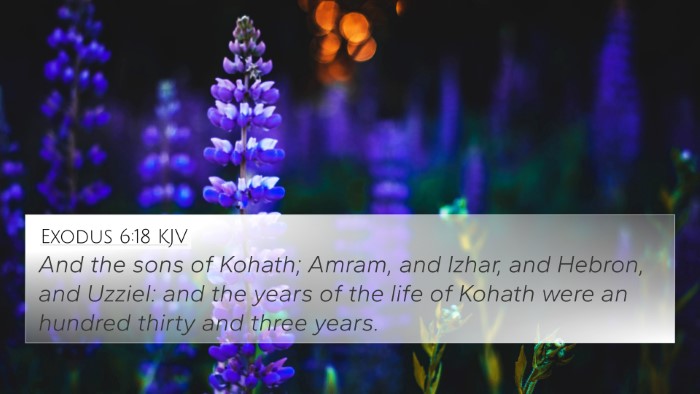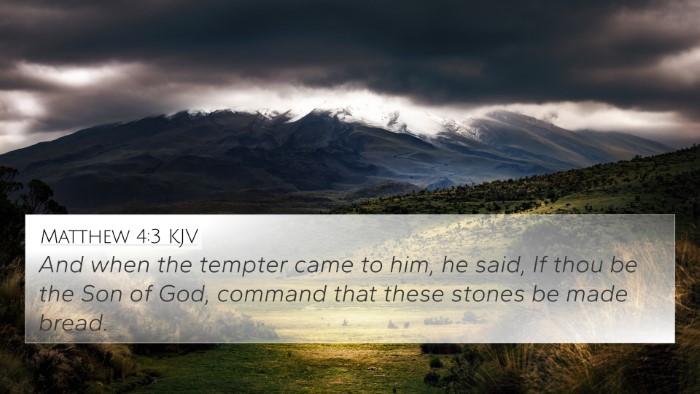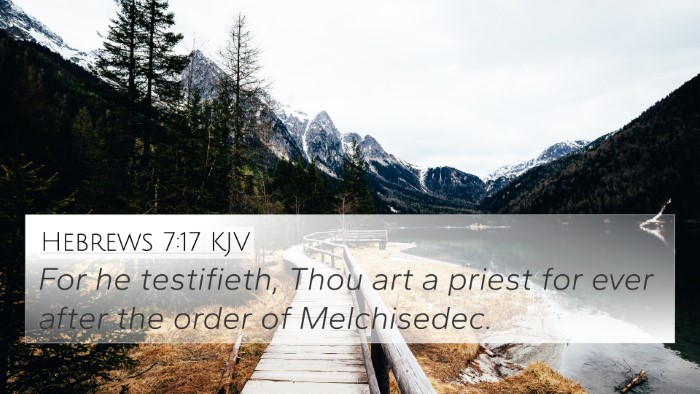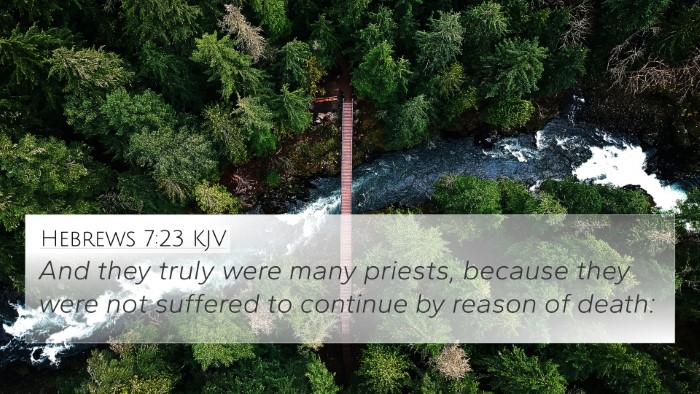Understanding Hebrews 7:3
Hebrews 7:3 states, "Without father, without mother, without descent, having neither beginning of days, nor end of life; but made like unto the Son of God; abideth a priest continually." This verse speaks about Melchizedek, a mysterious figure in the Bible, whose priesthood is likened to that of Jesus Christ.
Key Themes in Hebrews 7:3
Hebrews 7:3 highlights several significant theological themes:
- The Eternal Priesthood: Melchizedek represents a priesthood that is eternal and not bound by lineage or earthly constraints.
- Precedent for Christ: The parallel drawn between Melchizedek and Jesus illustrates Jesus as the ultimate high priest.
- The Nature of Christ: By emphasizing that Melchizedek has “neither beginning of days, nor end of life,” the verse hints at the divine nature of Christ.
Commentary Insights
Insights from respected biblical commentators provide a deeper understanding:
Matthew Henry
Henry emphasizes Melchizedek’s unique status, noting that he serves as a prototype of Christ’s eternal priesthood. He points out the significance of Melchizedek being without genealogy, indicating that Jesus' priesthood does not rely on human lineage or the Levitical order.
Albert Barnes
Barnes draws attention to the implications of Melchizedek's lack of descent, suggesting that this characteristic underscores the divine authority of Christ’s priesthood, transcending the traditional priestly line of Aaron.
Adam Clarke
Clarke elaborates on the expression “abideth a priest continually,” arguing that it signifies the permanence of Christ’s intercession for humanity, highlighting Melchizedek’s role as a foreshadowing of Christ’s eternal priestly ministry.
Cross-References and Related Verses
Hebrews 7:3 relates closely to several other scriptures, providing rich connections for further study:
- Genesis 14:18-20: The origin of Melchizedek’s priesthood.
- Psalms 110:4: "Thou art a priest forever after the order of Melchizedek," reinforcing the notion of eternal priesthood.
- Hebrews 5:6: This verse discusses Jesus' priesthood in the context of Melchizedek.
- Hebrews 5:10: Addresses Jesus as a high priest in the order of Melchizedek.
- Hebrews 6:20: Mentions Jesus entering as a forerunner, emphasizing His eternal role.
- 1 Peter 2:9: "But ye are a chosen generation, a royal priesthood," connecting believers to Christ’s priestly lineage.
- Luke 20:44: Discusses the lordship of the Messiah, affirming His divine nature akin to Melchizedek.
Connections Between Bible Verses
The connections between Hebrews 7:3 and these cross-referenced verses create an inter-biblical dialogue that enhances our understanding of the continuity of God’s plan through scripture:
- Covenantal Link: The covenant with Abraham (Genesis 14:19-20) establishes Melchizedek's importance as a symbol of divine blessing.
- Typology of Christ: Melchizedek as a type of Christ serves to deepen understanding of Christ’s role as high priest and king.
- Old Testament Foundations: The priesthood of Aaron as contrasted with Melchizedek shows a shift from the old covenant to the new covenant in Christ.
Conclusion
In summary, Hebrews 7:3 invites readers to explore the complexity of Christ’s priesthood while providing ample opportunity for comparative Bible verse analysis. Understanding Melchizedek in relation to Jesus not only enriches theological insight but also shows the interwoven nature of scripture, inviting believers to interpret and apply the rich themes of eternal priesthood and divine authority.
Tools for Bible Cross-Referencing
For deeper study, consider utilizing the following tools:
- Bible Concordance: To find specific verses and their themes.
- Bible Cross-Reference Guide: For systematic study of related texts.
- Cross-reference Bible Study: Engage in methods that facilitate comparative analysis.
